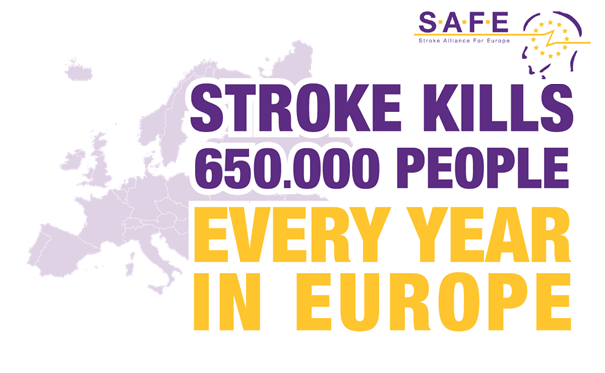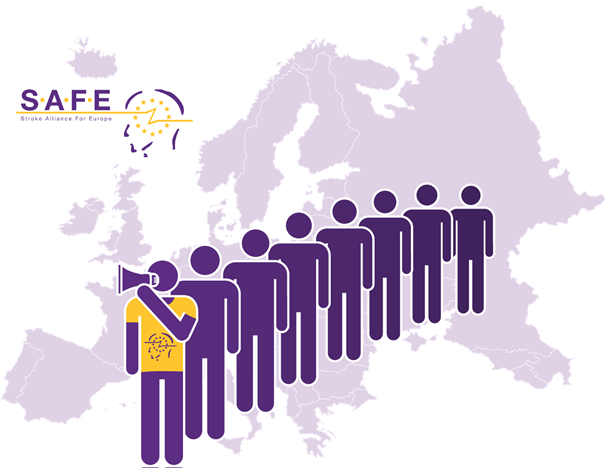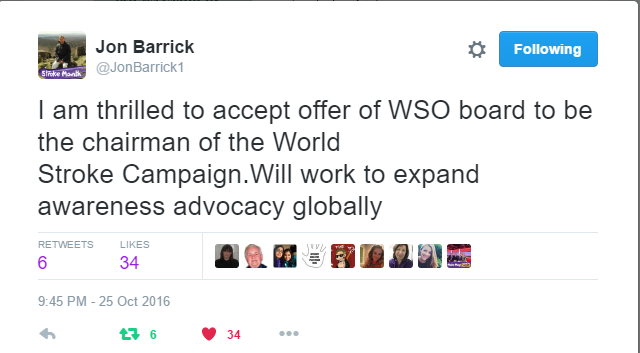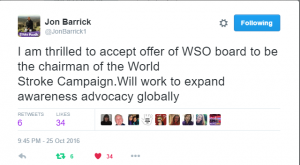
Oct 31, 2016
A robotic arm and a virtual game were essential tools in a new study from researchers at Johns Hopkins Medicine. The study results suggest that while training doesn’t change neurological repair in chronic stroke patients, it can indeed help such patients learn new motor skills and achieve more independence in their daily lives.
A report on the work is published in the journal Neurorehabilitation and Neural Repair on Oct. 27. (more…)

Oct 30, 2016
Henry Barnett, MD, highly regarded neurologist, acclaimed stroke prevention researcher, and cofounder of the Robarts Research Institute in London, Ontario, Canada, died last week at the age of 94, a release from the Institute notes.
“He was a pioneer, a founder, and the father of the scientific and therapeutic phase of our field,” fellow cofounder Vladimir Hachinski, MD, Department of Clinical Neurological Sciences at the University of Western Ontario, told Medscape Medical News. (more…)

Oct 29, 2016

Today is the World Stroke Day 2016
STROKE IS TREATABLE
And treatment should be equally available across Europe
Stroke Alliance for Europe marks the World Stroke Day 2016 by joining forces with scientific and commercial partners in an attempt of measuring the actual state of stroke care across Europe, said Jon Barrick, President of SAFE.
According to the World Health Organization 17 million people worldwide suffer a stroke each year, and 6.5 million don’t survive, yet stroke, as a burden of disease, still remains little understood. (more…)

Oct 28, 2016
The President and Board of the WSO offered Jon Barrick, the President of SAFE, the role of being the next Chairman of the World Stroke Campaign, which he has accepted.
I think it will be good for us to be able to shape awareness and advocacy work at world level, said Barrick.

The WSD Campaign Committee and Working Group will have a lot to do in developing the new campaign theme for the 2017 World Stroke Campaign and World Stroke Day. SAFE is honoured to have our President leading the WSD17 Campaign Team. (more…)

Oct 25, 2016
EFNA needs people to get involved in the action to ensure access to employment for those affected by neurological disorders and chronic pain conditions.
 Written Declaration no. 0112/2016 was launched on October 24th. We now have until mid-January to ensure that over half of all Ministers of the European Parliament sign this Declaration, to ensure that it does not lapse.
Written Declaration no. 0112/2016 was launched on October 24th. We now have until mid-January to ensure that over half of all Ministers of the European Parliament sign this Declaration, to ensure that it does not lapse.
Please help us to achieve this goal, which will benefit all those affected by neurological and chronic pain conditions across the EU.
(more…)











